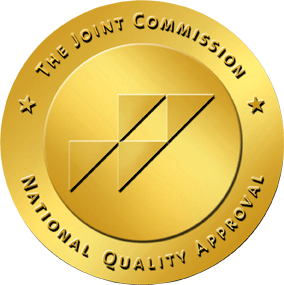Deciding to seek mental health treatment is a significant step. Whether you’re dealing with anxiety, depression, mood disorders, or a more complex diagnosis, finding the correct type of care is essential. In Miami, individuals have access to a wide range of treatment options, but choosing between inpatient and outpatient mental health services can feel overwhelming.
This blog will explain the differences between Outpatient vs Inpatient Mental Health care, highlight the benefits of each, and guide you toward making an informed decision based on your unique needs.
Understanding Inpatient Mental Health Treatment
Inpatient mental health treatment is designed for individuals experiencing severe mental health crises or conditions that require round-the-clock care and supervision. Patients stay at a mental health facility, hospital, or residential center where they receive 24/7 support from a team of professionals, including psychiatrists, psychologists, nurses, and therapists.
Inpatient treatment is often recommended for:
- Suicidal ideation or self-harming behaviors
- Severe depression or anxiety that impacts daily functioning
- Acute psychosis or hallucinations
- Substance abuse disorders with mental health complications
During inpatient care, patients follow a structured daily schedule that includes individual therapy, group therapy, medication management, crisis intervention, and recreational activities. The goal is stabilization and intensive support during the most critical moments of a person’s mental health journey.
Understanding Outpatient Mental Health Treatment
Outpatient mental health treatment provides professional care without requiring patients to stay overnight in a facility. This approach is ideal for stable individuals who still need structured therapeutic support regularly.
There are several types of outpatient services available:
- Traditional Outpatient Therapy: Weekly or bi-weekly sessions with a therapist.
- Intensive Outpatient Programs (IOP): Multiple weekly therapy sessions focused on managing moderate symptoms.
- Partial Hospitalization Programs (PHP): These programs offer daytime treatment for several hours per day, similar in intensity to inpatient care, but patients return home each evening.
Outpatient treatment is suitable for:
- Mild to moderate anxiety or depression
- Transitional care after inpatient treatment
- Patients with strong support systems at home
- Individuals maintaining work, school, or family responsibilities
These programs offer flexibility, making it easier for individuals to continue their daily routines while receiving professional help.
 `
`
Outpatient vs Inpatient Mental Health: What’s the Difference?
Choosing between inpatient vs outpatient mental health care depends on the severity of your symptoms, your safety, and the level of support you need.
| Feature | Inpatient Mental Health | Outpatient Mental Health |
| Supervision | 24/7 medical and psychiatric care | Scheduled sessions, live at home |
| Severity of Condition | For acute, severe mental illness | For moderate or stable conditions |
| Flexibility | Limited flexibility | High flexibility for work/school |
| Duration | Days to weeks | Weeks to months |
| Cost | Typically higher | Generally more affordable |
| Insurance Coverage | Usually covered | Often fully or partially covered |
The most crucial factor is feeling safe and supported in your current environment. If you’re experiencing frequent emotional crises, hospitalization may be necessary. However, if you feel stable enough and have a reliable support system, outpatient programs may provide the structure you need without removing you from your daily life.
How to Know Which One You Need
Choosing the appropriate level of mental health care requires clarity and expert guidance. Use the following pointers as a reliable guide to determine whether inpatient or outpatient care is the right fit for your needs:
- Choose inpatient care if you are experiencing persistent suicidal thoughts, self-harming behavior, or any immediate safety concerns.
- Opt for inpatient care when symptoms of depression, anxiety, or psychosis are so severe that they disrupt your ability to function in daily life.
- Transition to inpatient care if outpatient treatment has failed to stabilize your symptoms or has led to repeated relapses.
- Select outpatient treatment when your symptoms are manageable and you can safely live at home while receiving care.
- Go with outpatient services if you have strong support systems and can maintain your work, school, or home responsibilities.
- After being discharged from an inpatient facility, begin with outpatient care to continue progress with consistent support.
Consulting with a licensed mental health provider ensures these decisions are based on clinical expertise, not guesswork. Providers at Improving Lives Now are trained to assess your condition thoroughly and match you with the most effective level of care.
Benefits of Outpatient Mental Health Treatment
Maintain Daily Routine
Outpatient care allows patients to live at home and continue working, attending school, and caring for family while receiving consistent therapeutic support.
Flexible Scheduling
Appointments can be planned around your availability, reducing stress and improving treatment adherence.
Gradual Integration
Patients can practice and integrate skills from therapy into real-world situations immediately.
Continued Connection
Outpatient programs support recovery without removing patients from their familiar environments, which can help maintain a sense of normalcy.
Cost-Effective
Outpatient care is usually more affordable than inpatient treatment, and many services are covered by insurance.
Benefits of Inpatient Mental Health Treatment
Immediate Stabilization
Inpatient facilities provide rapid stabilization for individuals in crisis, ensuring safety and 24-hour supervision.
Intensive Support
Access to multiple therapies per day, medication adjustments, and specialized care creates a highly focused healing environment.
Safe and Structured Environment
Eliminates daily stressors and triggers that may worsen symptoms, allowing for uninterrupted recovery.
Peer Community
Group therapy and shared experiences build a sense of belonging and reduce isolation during vulnerable times.
Ideal for Severe Cases
Inpatient settings are best for individuals who require constant monitoring due to the severity of their condition.

Mental Health Services in Miami: What’s Available?
Miami is home to a wide range of reputable mental health facilities and programs. Whether you need inpatient stabilization or structured outpatient treatment, you can find:
- Licensed outpatient clinics for adults and teens
- Daytime PHP and IOP options
- Culturally competent bilingual care
- Emergency psychiatric services
- Providers like Improving Lives Now, who specialize in customizing care plans
Getting help starts with a call. Most facilities offer intake assessments to guide you toward the appropriate level of care.
Take the First Step Toward Mental Wellness in Miami
Choosing between inpatient and outpatient mental health care doesn’t have to be overwhelming. Improving Lives Now offers comprehensive, compassionate care tailored to your situation. Whether you’re in crisis or simply need extra support to manage your mental health, our team is here to help you heal.
Our licensed professionals will evaluate your needs and guide you toward the best treatment path, whether starting an outpatient program or receiving more intensive inpatient support.
Don’t wait for things to get worse. Reach out today to take control of your mental health journey.
7171 SW 62nd Ave. Ste 300, Miami, FL 33143
Email: in**@***************ow.com
Opening Hours: Mon–Fri 9:00 am – 7:00 pm
Tel: (305) 280-1440
Frequently Asked Questions (FAQs)
- What is the main difference between inpatient and outpatient mental health care?
Inpatient care involves 24/7 supervision in a facility, while outpatient care allows patients to live at home and attend scheduled sessions. - How long do inpatient and outpatient treatments last?
Inpatient treatment can last a few days to several weeks, and outpatient programs may last several weeks or months, depending on the individual’s needs. - Can I switch from outpatient to inpatient if needed?
If your symptoms worsen or safety becomes a concern, your provider may recommend transitioning to inpatient care. - Are these services covered by insurance?
Most inpatient and outpatient programs are covered by insurance, but coverage levels may vary. Always verify with your insurance provider. - 5. Can I work or go to school while in outpatient treatment?
Yes. Outpatient mental health programs are designed to be flexible, allowing you to continue your daily responsibilities.


